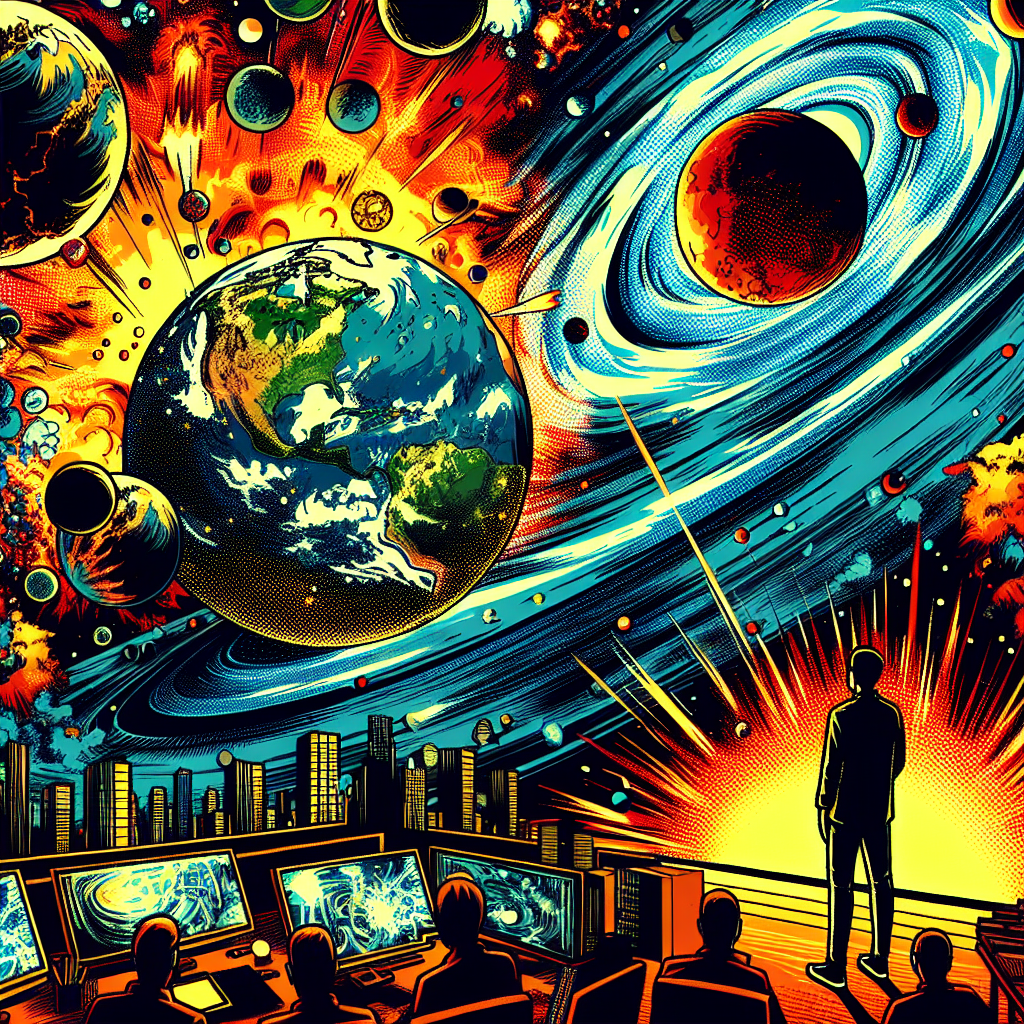Earth's expulsion from the solar system would be a catastrophic event, plunging our planet into an uncharted, icy darkness. Imagine a spacecraft, but instead of carrying astronauts, it's our entire planet, ejected from its cozy orbit around the sun.
The initial effects would be subtle, almost imperceptible. Earth's speed, about 29.78 kilometers per second, would remain constant, but its direction would change dramatically. Our planet would no longer follow its elliptical orbit around the sun, instead, it would embark on a journey into interstellar space.
The first noticeable change would be the gradual decrease in temperature. As Earth leaves the solar system, it would no longer bask in the warmth of the sun's rays. The average temperature would drop, and the once-blue skies would turn a deep shade of indigo as the sun's light becomes more distant and colder.
In the first few weeks, the most immediate consequence would be the extreme cold. Water pipes would freeze, and the ground would become as hard as concrete. The air would chill, making it difficult to breathe. Humans and animals would struggle to survive as the cold ravages our ecosystem.
As Earth travels further away from the sun, the reduced solar energy would severely impact global food production. Crops would wither and die, and the food chain would collapse. The lack of sunlight would cripple photosynthesis, and the very foundation of our ecosystem would begin to unravel.
The night sky would undergo a transformation as well. The stars would appear more vivid, and the constellations would shift as our vantage point changes. The moon, now freed from its gravitational bond with Earth, would wander off into the vast expanse of space, leaving our planet to spin alone.
The planet's rotation and magnetic field would undergo a radical transformation. The magnetic field, generated by the Earth's core, would weaken, exposing our atmosphere to harmful solar winds. The solar winds would strip away the atmosphere, making it difficult for life to thrive.
As Earth ventures further into interstellar space, the planet's atmosphere would freeze and dissipate. The air would grow thinner, making it difficult for humans and animals to breathe. The extreme cold would cause the atmosphere to condense and freeze, creating a sheet of ice that would encase the planet.
The absence of sunlight would also disrupt our planet's water cycle. Water, essential for life, would freeze, and the oceans would turn into giant ice cubes. The Earth's geological activity would slow, and volcanoes would cease to erupt as the planet's core cools.
In time, Earth would resemble a small, dark, and frozen world, a shadow of its former self. The expulsion from the solar system would signal the end of our planet's habitability, and life, as we know it, would cease to exist. The planet would become a barren, icy tomb, a ghostly reminder of a once-thriving world, lost in the vast expanse of space.
In the end, Earth's ejection from the solar system would be a slow, agonizing demise, a protracted and irreversible collapse of our ecosystem. Our planet, once teeming with life, would succumb to the unforgiving vastness of space, a dark and lonely sentinel, adrift in the cosmos.

Popular Space Questions
Find answers to the trending space questions being asked by our community on social media.
- How many galaxies are there in the universe?
- What would happen if a pulsar's beam hit Earth?
- How far is Pluto from Earth?
- How many planets are in the Milky Way?
- How many planets are in our solar system?
- What would happen if a cosmic string passed through Earth?
- How big is the Earth?
- What are the planets in order?
- What if we could create a Dyson sphere around the sun?
- What if we found a way to manipulate gravity?